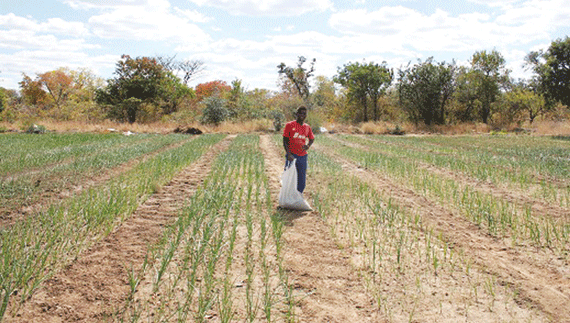
SUSTAINABILITY can be defined a variety of ways.
To summarise a few common notions: A sustainable system should minimise the use of non-renewable inputs; should not take more from the environment than is put back in; should act fairly with regard for all other human beings both now and in the future; should care for the Earth and our environments, including other living beings.
Sustainable agriculture should also work with local farmers’ knowledge, improving self-reliance and building on human and social capital.
Over the next few weeks, this column will take a look at a sustainability projects from around Zimbabwe that are working towards these goals.
Rural youth development at Ebenezer Trust is an organisation that works explicitly to improve self-reliance and human capital in their local community.
It has been running an agribusiness training centre for local youth since 2007.
Located in Mablauwuni village in the dry Matopos area of Matabeleland South, they run a two year full-time apprenticeship that enables young people (17-23-year-olds) to start and run their own small-scale agribusinesses.
It has a Christian agenda, with compulsory Bible studies and Christian education classes mixed in with a curriculum of business studies, maths, English and agriculture.
- Chamisa under fire over US$120K donation
- Mavhunga puts DeMbare into Chibuku quarterfinals
- Pension funds bet on Cabora Bassa oilfields
- Councils defy govt fire tender directive
Keep Reading
Mornings are spent in the fields doing practical work, with afternoons spent in lessons.
The centre is co-ordinated by Renée Cunningham and in February 2014, there were approximately 65 resident apprentices, all from the local area and not required to pay any enrolment fees.
During their first months, the apprentices gain basic skills in agribusiness.
The system is quite unique in that it is based on the principle of “earn while you learn”.
After six months, each apprentice is allocated a small plot of land on which to grow their own cash crops (tomatoes, onions, beans, cabbages, etc).
Each trainee utilises three 30mx30m (and 50mx50m) plots and they are encouraged to cultivate at least three different kinds of crop.
A contract is entered into between the apprentice and a distributor and agroprocessing company, who provide the initial inputs.
The apprentice sells their produce to the buyer — a guaranteed market — and then gets paid based on a production reward which is approximately 50% of the profits.
These rewards are put aside until graduation which means that the apprentices are able to save the capital needed to start their own business.
Once they can afford to independently purchase their own inputs, they keep a higher share of the profit.
By the end of the two year period, successful apprentices will have managed to save money to buy their own tools and should have enough to start their own small agri-business when they return home.
The system thus encourages patience, discipline, forward-planning and entrepreneurial behaviour.
The centre is committed to supporting the economic and social development of participating youth, and promoting business ethics and self-sufficiency in the local community.
Many innovative projects have started in the community as a result of the youths’ training, including broiler production projects and small-scale commercial horticulture schemes.
Ebenezer is dedicated to building capacity at the local level and encouraging people not to depend on hand-outs. With business ethics high on the agenda here, one drawback I observed on site was the continued application of inorganic fertilisers and pesticides in a fairly fragile ecosystem, as well as spray irrigation, which is quite wasteful in terms of water use (as opposed to drip).
The centre practices a kind of conservation farming, but could deepen its “sustainability” ethic by encouraging a more holistic, less impactful approach to farming.
For more information on the training program, contact Renee Cunningham at 0778 529747 or [email protected]










